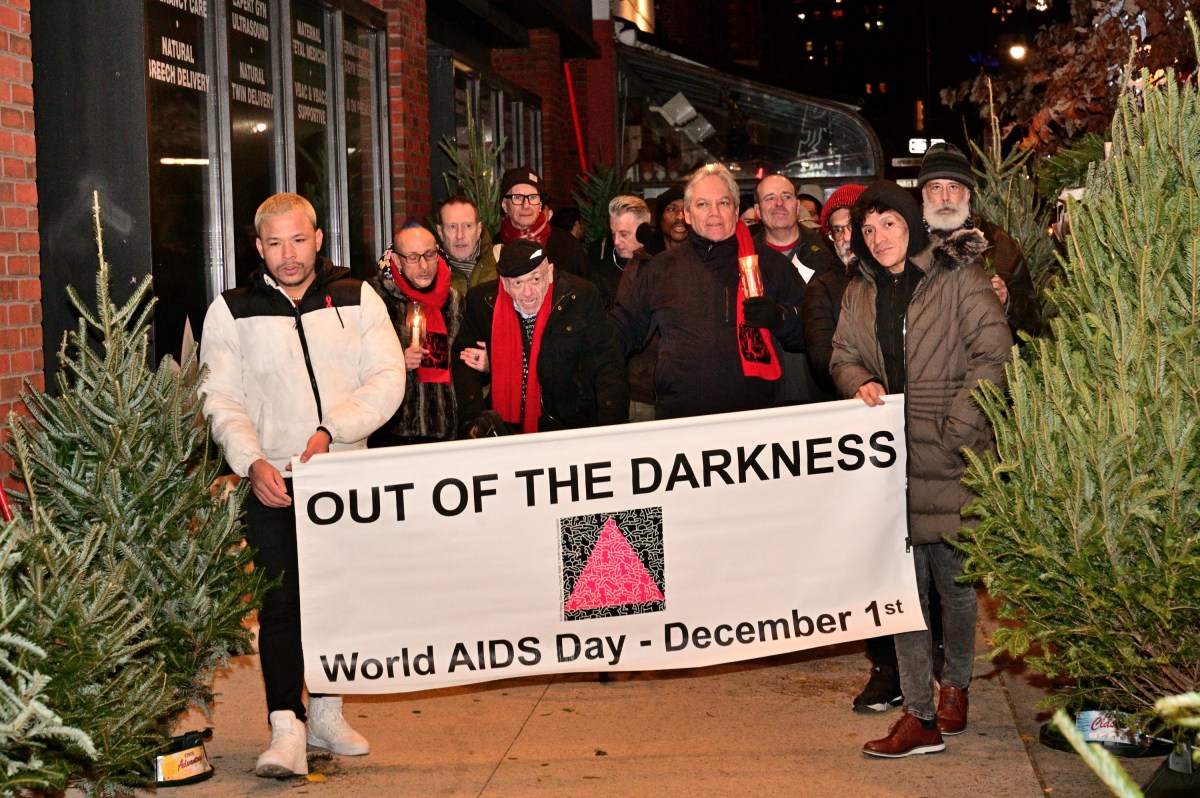BY RICHARD E. GREENE, MD & PERRY N. HALKITIS, PhD, MS, MPH | Over the past 30-plus years, conversations between primary health care providers and their gay patients have focused largely on HIV prevention or treatment, along with and other sexually transmitted infections. And while these are significant issues, they cannot be the only elements that define health care.
Our approach must be more expansive, especially for the new generation of young gay men. As our research at NYU’s Center for Health, Identity, Behavior & Prevention Studies (CHIBPS) has shown, concern for HIV, while important, is not their primary concern.
In our ongoing P18 Cohort Study, young men rank finances, appearance and job security higher than concern about HIV, which ranked 18th in a list of 40 priority factors. For this and numerous other reasons, health care must be delivered more holistically and be less HIV-centric if we are to effectively engage all gay men in active and routine care.

Vaccinations are a critical, yet often overlooked element in a more expanded framework for the delivery of health care to gay men.
A specific set of vaccinations is critical to preventing diseases that are more common in our population. Unfortunately, the discussion of vaccinations is often tangential, leaving many to go unvaccinated for highly preventable diseases.
This missed opportunity is best exemplified with regard to Human Papilloma Virus (HPV), which is sexually transmitted by skin-to-skin contact and can lead to warts or increase the risk of cancer. Strains of HPV in women increase the risk of cervical cancer, and newer research shows that HPV can increase the risk of anal cancer. There’s even some evidence to show that it may increase the risk of mouth and throat cancers in people who perform oral sex. But vaccination among gay men is sub-par. In the P18 Cohort Study, we found that of 418 young men who are currently 22 to 23 years old and meet clear criteria for vaccination, close to 61 percent have not been vaccinated for HPV.
Currently, the Centers for Disease Control and Prevention (CDC) recommends that all gay men ages 26 and under should have the HPV vaccine. Given in three separate injections, it is most effective if administered in full before someone first becomes sexually active. Ideally it would be given to boys at 12 or 13 years old (even if you have been exposed, there is evidence that vaccination can confer some protection). All three shots may be required for full vaccination. In P18, of the young men who indicate they have received HPV vaccination, only 30 percent has received the full dose.
Another preventable disease is Hepatitis B. As with HIV, it can be transmitted through blood and semen — but unlike HIV, it primarily affects your liver, and can lead to liver failure or even liver cancer. Occasionally, people who are infected can clear the virus before it causes any ongoing problems.
In 1991, the Hep B vaccine became recommended for all children in the U.S. If someone is unsure of their vaccination status, there’s a simple blood test to check for immunity. Screening and vaccination for Hep B has become even more important with the use of the medication Truvada for Pre-Exposure Prophylaxis (PrEP, the consistent use of anti-HIV drugs by HIV-negative people to keep them uninfected), since Truvada can treat Hep B as well. However, if someone’s risk for HIV goes down and they are planning to stop the Truvada, they need to discuss other treatments for Hep B with their health care provider.
Like Hep B, Hep A is also highly preventable. Less scary than Hep B because it is not permanent, Hep A can, in rare cases, be fatal. Like Hep B, it has effects on the liver. Those folks who get it feel miserable, with terrible abdominal pain and possible clay-colored stool. Hep A can be transmitted by oral and anal sexual activity (including rimming). Since 1996, the CDC has recommended this vaccination for all gay men and, since 2006, for all children.
Finally, about two years ago there was an outbreak of bacterial meningitis in New York City among gay men. Bacterial meningitis is serious business — it’s an infection of the lining around the brain and is often deadly if not picked up and treated early. Of the 22 cases in NYC, seven of the men died. Meningitis is not generally considered to be a sexually transmitted infection, but only those who were sexually active seemed to contract it during the outbreak. There hasn’t been a case in almost a year, but the disease is quite serious and the vaccine is a one-time vaccine (or two shots, a month apart, if you have HIV).
Ultimately, these vaccinations and other heath-promoting strategies (like not smoking cigarettes, regular exercise, eating well, moderating alcohol use, and seeking mental health care) are critical to enhancing the overall health of gay men since, as a population, our health is defined by more than just HIV. However, this also requires receiving care regularly — and as our P18 study shows, close to 40 percent of young men with whom we spoke to had not received any care in the last year.
So as we work towards vaccinating gay men against highly preventable diseases, we must also think through ways in which we can deliver care to gay men, especially young gay men — in places they navigate socially, and outside the clinic or doctor’s office. Such venues may not only help to enhance uptake of care and vaccinations, but may also help to more fully realize the potential of strategies like PrEP that require regular health care visits.
Richard E. Greene is Assistant Professor of Medicine and Medical Director of the Center for Health, Identity, Behavior & Prevention Studies and Perry N. Halkitis is Professor of Applied Psychology, Global Public Health, & Medicine, and Director of the Center for Health, Identity, Behavior & Prevention Studies at New York University (@DrPNHalkitis; perrynhalkitis.com). If you are interested in participating in their studies or learning more about their research, visit chibps.org.




































